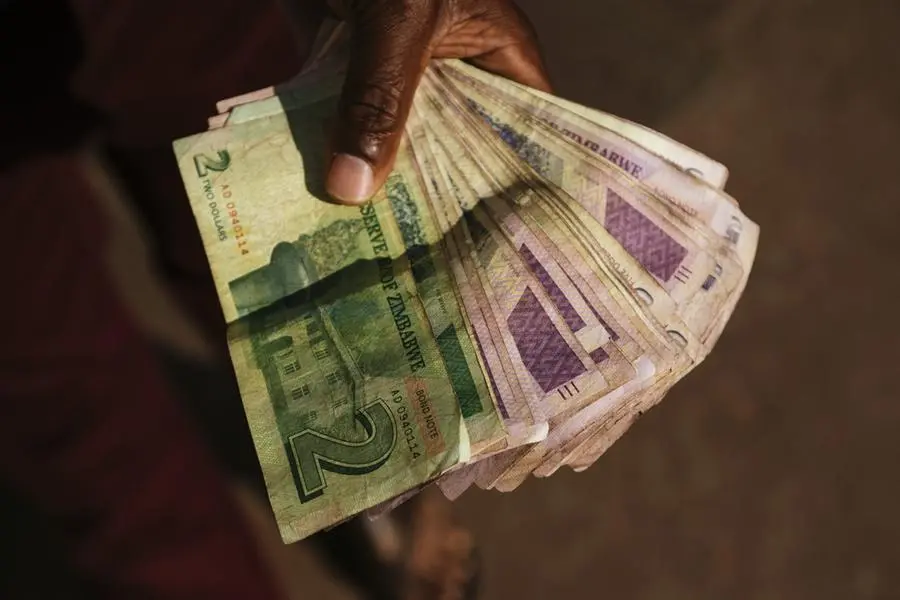PHOTO
The blended consumer price index, which the southern African nation adopted as its inflation benchmark in February, rose 175.8% in June from 86.5% the previous month, Zimbabwe National Statistics Agency said at a briefing. Prices climbed 74.5% in the month, compared with 15.7% in May.
The new gauge was selected as the agency said it better reflects the nation’s economic reality because it tracks prices in both US and Zimbabwean dollars, unlike the previous benchmark that only assessed costs in local-currency terms. The greenback accounts for 75% of all transactions in the economy. It is widely used to pay for food, fuel and services and is preferred as a better store of value than the volatile Zimbabwean dollar.
The Confederation of Zimbabwe Industries, the country’s largest industry association, said in a report ahead of the release, that it’s unlikely that the monthly inflation target set by authorities of between 1% to 3% would be achieved this year.
“The ability to meet blended inflation targets is now under serious threat,” the association said.
Inflation has been stoked by a sharp depreciation in the Zimbabwean dollar. The central bank has loosened controls on the foreign-exchange market since May. It stopped short of free-floating the local currency in the battle to end volatility and close the gap between the official and black-market rate that’s distorted pricing and led to a spike in food costs.
The Zimbabwean dollar has depreciated 85% in the past two months on the official market.
The high cost of living and currency weakness are likely to become rallying points heading up to elections scheduled for Aug. 23, which will see 11 candidates vie for the position of president including incumbent Emmerson Mnangagwa.
The central bank’s monetary policy committee on June 6 lifted the world’s highest interest rate to 150% from 140%, three weeks ahead of a scheduled gathering to contain inflation but has since ruled out further increases.
“We’ve already hiked rates and there is a limit to hiking rates,” beyond which point they will cause non-performing bank loans to increase, Governor John Mangudya said last week.
The central bank’s recent moves form part of a raft of measures by the authorities to stabilise the Zimbabwean dollar, including Mnangagwa‘s prohibition on the bank borrowing any foreign currency without prior approval from Treasury.
© Copyright The Zimbabwean. All rights reserved. Provided by SyndiGate Media Inc. (Syndigate.info).




















